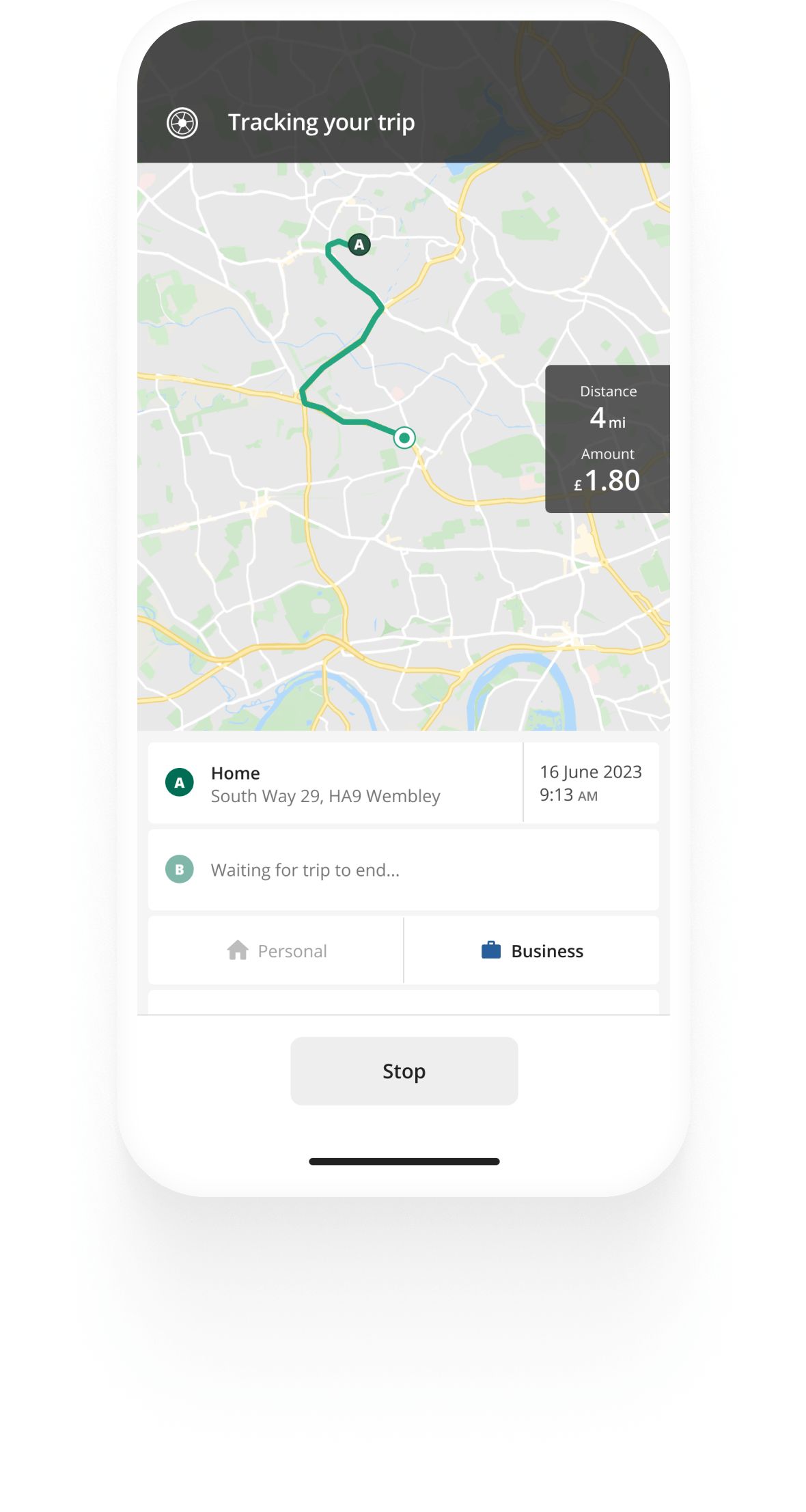Track mileage automatically
Get startedBusiness expenses
In this article
Business expenses are any expenses you accrue to run your business. HMRC allows the deduction of some of these expenses, so long as they are considered allowable. Deducting business expenses will help you recover the expenditures by lowering your taxable profit. You cannot deduct any personal expenses, and if an expense is partly for business and partly for private use, you will only be able to deduct the expense relating to the business portion of its use.
Allowable business expenses
Allowable business expenses are the expenses you can claim according to HMRC rules. Here is a common business expenses list in the UK:
- Office costs such as rent, utilities, stationery, insurance, security
- Financial costs such as accounting, legal or banking fees
- Employee wages, bonuses, commissions, and any eligible employee expenses you have reimbursed
- Travel costs such as business-related travel, vehicle maintenance and driving for business purposes (see our guide on mileage claims for the self-employed)
- Clothing expenses such as uniforms
- Marketing and advertising
- Training courses
- Subcontractor costs
- Raw materials or stock you sell on.
While this list is not exhaustive, it should give you a good idea of the business costs you are allowed to claim.
Business expenses you can claim as capital allowances
You will be able to claim a capital allowance on purchases you will keep to utilise for your business, such as vehicles, machinery or equipment if you use traditional accounting.
Note that if you use cash basis accounting, you will be able to claim a capital allowance on a purchased car, but other items should be deducted as allowable business expenses.


Mileage tracking made easy
Trusted by millions of drivers
Automate your mileage log Automate your mileage log

Automatic mileage tracking and HMRC-compliant reporting.
Get started for free Get started for freeClaiming business expenses from HMRC
If you use your tax-free trading allowance of £1,000, you will not be able to claim any allowable or capital expenses.
You cannot claim any private purchases on the tax return. Note that if you run your own limited liability company, you will have to declare any items you have made use of personally as a company benefit.
As a self-employed individual, you can choose to simplify your business expenses claim by using the simplified expenses method, where there is a flat rate for any allowable expense, rather than keeping receipts and doing extensive calculations on your business-related expenses. You can find more about simplified expenses on HMRC’s website.
FAQ

Tired of logging mileage by hand?
Effortless. HMRC-compliant. Liberating.
Related posts
HMRC mileage guide
Latest update: 18 February 2026 - 5 min read
Welcome to our guide on mileage claims and reimbursement in the UK. This guide will walk you through the rules that apply to your situation.
Free mileage log book template
Latest update: 18 February 2026 - 2 min read
Whether you're an employee or a business owner, it's crucial to keep good mileage records in a mileage log book.
How to pick the best mileage tracker app
Latest update: 19 February 2026 - 2 min read
Maintaining consistent and accurate records of trips without a mileage tracker app can be a chore. Here's how an app can make things easier.

.svg)